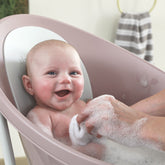Finding out you’re pregnant is an exciting and emotional moment, and pregnancy tests are often the first step to confirmation. Beyond the initial test, a range of screening options throughout your pregnancy can provide insights into your baby’s health and development. Here’s what you need to know about pregnancy tests and the prenatal screening process.
Understanding Home Pregnancy Tests
What they detect: Home pregnancy tests detect the hormone hCG (human chorionic gonadotropin), which your body starts producing after the embryo attaches to the uterine lining. Most tests are over 99% accurate when taken after a missed period.
When to take it: For the most accurate results, take the test at least a week after your missed period. Testing too early might give you a false negative, as your hCG levels may not be high enough yet.Tips for testing:
- Use your first-morning urine when hCG levels are most concentrated.
- Follow the instructions carefully for the best results.
- If the result is negative but your period still doesn’t arrive, try again after a few days.
What to Expect After a Positive Test
Once you’ve confirmed your pregnancy, your healthcare provider will guide you through a series of screenings and tests to ensure both you and your baby are healthy. These tests are designed to detect any potential health issues early on.
Common Prenatal Screening Tests
1. First Trimester Screenings- Blood tests and ultrasound: During your first trimester, blood tests check your hormone levels and for any early genetic markers. A nuchal translucency (NT) ultrasound measures the thickness at the back of the baby’s neck, helping to screen for chromosomal abnormalities like Down syndrome.
- Non-invasive prenatal testing (NIPT): This blood test screens for chromosomal conditions as early as 10 weeks by analyzing fragments of fetal DNA circulating in your blood.
- Quad screen: A blood test that checks four substances in your blood to assess the risk of chromosomal abnormalities and neural tube defects like spina bifida.
- Glucose tolerance test: Between 24 and 28 weeks, this test checks for gestational diabetes by measuring how your body processes sugar.
If any screenings suggest a higher risk of complications, your provider might recommend diagnostic tests like:
- Amniocentesis: A sample of amniotic fluid is taken to diagnose conditions such as Down syndrome or spina bifida.
- Chorionic villus sampling (CVS): This test, done earlier than amniocentesis (usually between 10-13 weeks), examines placental tissue for chromosomal conditions.
What if the Results Raise Concerns?
While screenings can detect risk factors, they are not definitive diagnoses. If any results indicate a possible concern, your provider will guide you through additional testing and counseling. Remember, many babies born after abnormal screening results are perfectly healthy.
Taking Control of Your Prenatal Care
Regular prenatal visits allow your healthcare team to monitor your and your baby’s health. Speak up about any concerns and be an active participant in your care. Each test and screening is a tool to help ensure your pregnancy progresses smoothly and safely.
Pregnancy tests and screenings can feel overwhelming, but they are critical tools in understanding your baby’s health. With the right information and support, you can navigate these tests with confidence. Remember, most pregnancies progress without significant issues, and early detection gives you the power to make informed decisions for a healthy outcome.
Editor’s Picks
Shnuggle Baby Bath | Newborn baby bath Support with Bum Bump | Compact Bathtub for babies | Bath Seat Suitable from Birth
- $59.95
- $59.95
- (-0%)
- Unit price
- / per
Shnuggle Toddler Bath Tub | Big Bath for bigger kids | Child bathtub seat support | Fits in shower and adult bath
- $74.95
- $74.95
- (-0%)
- Unit price
- / per
Nattou Silicone Children Tableware Set of 4 Pieces
- $26.21
$34.95- $26.21
- (-25%)
- Unit price
- / per
Nattou Musical Mobile Tim and Tiloo
- $28.12
$42.95- $28.12
- (-35%)
- Unit price
- / per
Nattou Comforter Doudou Elephant Tembo
- $18.37
$24.50- $18.37
- (-25%)
- Unit price
- / per














